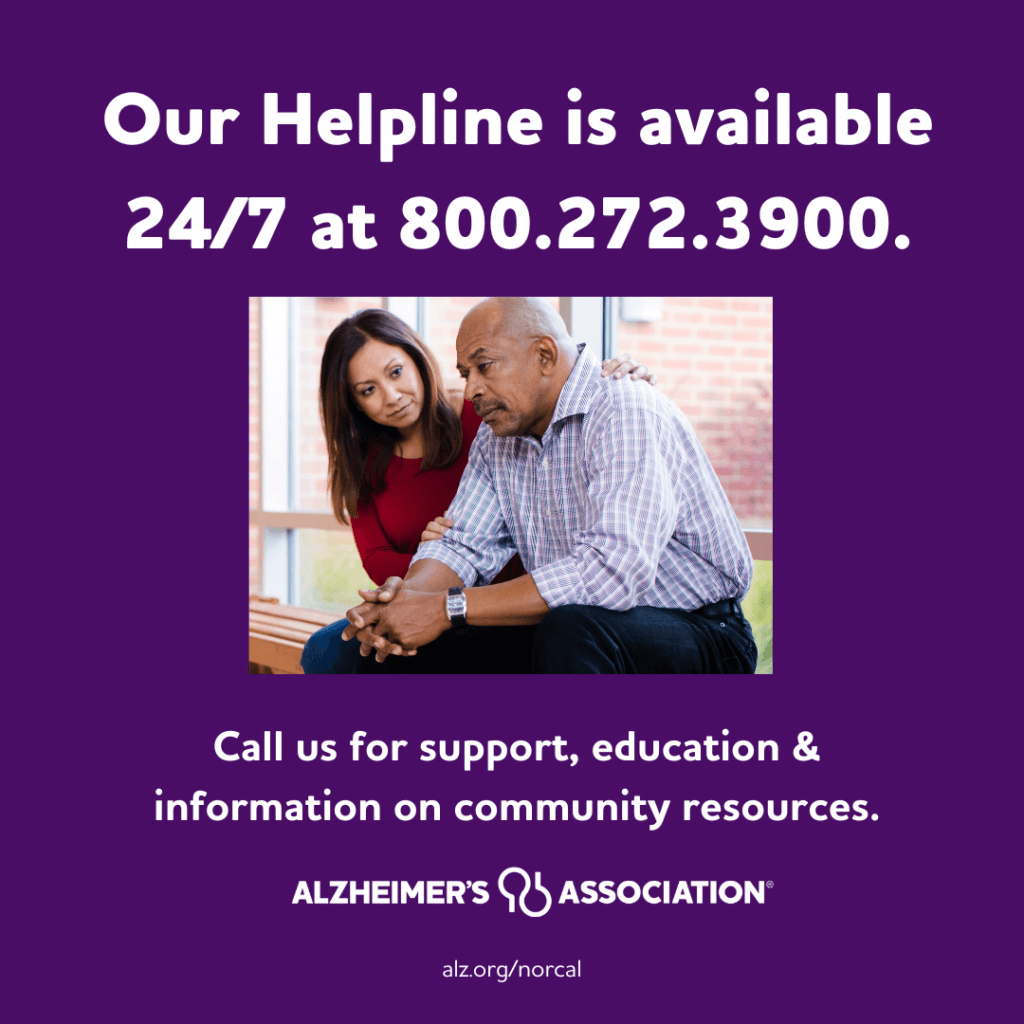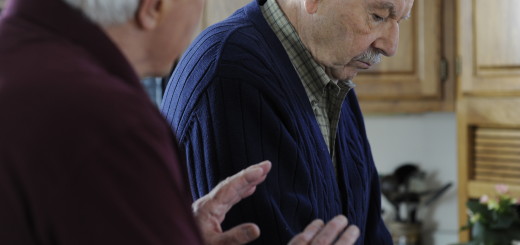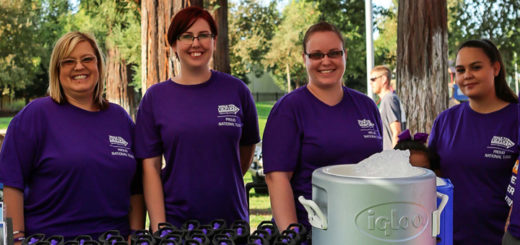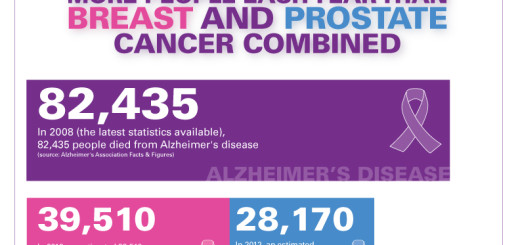Minden caregiver protects sister living with dementia
Pat and Martha are adult siblings who have remained good friends over the years. As a younger brother, Pat knows it’s his responsibility to care for and protect his big sister who is living with Alzheimer’s disease. He helped her get a diagnosis, protected her from being scammed and even moved her to Nevada to be closer to him. Pat shares how the Alzheimer’s Association® support groups and 24/7 Helpline (800.272.3900) helped him care for his sister.
Growing up
Pat and his older sister Martha grew up together in Michigan. When they were five and eight years old respectively, their father got a job at what is now California State University, Fresno. The family took a year driving across the country, seeing the sights before finally settling in California.
In adulthood they remained friends. Pat became a journalist who went on to serve in the United States Army. After his tour ended, he continued his career in radio and TV, eventually living in Napa, California. When it came time to retire, Pat moved to Minden, Nevada where he currently lives.
Martha, with degrees in Library Science and Anthropology, would go on to become a world renown weaver. “I was the most proud of her when she won the Governor’s trophy in fine arts,” said Pat. “You might go to Peru to learn weaving; my sister went to Peru to teach it. I was so proud of her.”
As the siblings got older, they recognized the need to have a power of attorney in place, just in case one of them were to become ill. Pat became Martha’s power of attorney before she got sick. “We’re the surviving members of our immediate family,” said Pat. “We’re all that’s left of the West Coast family.
Noticing the signs
In 2012 Pat was already living in Nevada when his sister, who was living near Santa Cruz, California, started having problems with her memory. At first, she was just forgetting appointments and names. By 2013 Martha was forgetting the big things like not sending a weaving display to an art gallery and not cashing checks.
A couple of years later, Martha was getting lost on the way to places she’d been before. When Pat called Martha and her line was disconnected because she had stopped opening her mail and paying bills, he knew it was time to act. Martha’s best friend took her to a doctor where she was diagnosed with Alzheimer’s.
Losing her license
Despite her diagnosis, Martha continued to drive, which proved to be unsafe. The first time she got into an accident she drove off a mountain road and miraculously was unhurt. The second time she got into an accident, she bumped the car in front of her at the library and drove off. A bystander saw that there was damage to the other car and called the cops.
“Martha got a visit from the cops,” said Pat. “We explained what was going on. Within a few weeks we got a notice from the DMV. Her doctor was required to tell the DMV [about her diagnosis] and she lost her license. I am grateful for that. Even now she sometimes asks, ‘Where is my car?’”
Financial abuse
People with dementia are especially vulnerable to abuse because the disease may prevent them from reporting the abuse or recognizing it. They also may fall prey to strangers who take advantage of their cognitive impairment. This was true for Martha.
At the time, in 2017, Martha was living alone in her home. She hired a handyman to help with odd jobs around the house. Her handyman tricked her into borrowing $10k without any paperwork. Approximately a year later, Pat received a call from Martha’s bank informing him that they had just issued her a check for $30k.
“I got a call from her financial institution saying they thought they should call me immediately,” said Pat. “She had a cashier’s check to buy the handyman a new Chevrolet. He was reported to Adult Protective Services. Then we got a court order to keep him away.”
Moving to Nevada
In 2022, Martha’s financial advisor called Pat and said, “Martha is going to lose her entire life savings if we don’t do something right away.” According to the Alzheimer’s Association 2023 Alzheimer’s Disease Facts and Figures report, the total lifetime cost of care for someone with dementia was estimated at $392,874 in 2022 dollars.
However, because Martha lived in the California Bay Area and she needed round the clock, in-home care, it was costing her $24k a month. Pat knew it was time for Martha to move closer to his home in Minden. “I sold her home and moved her here,” said Pat. “She’s in Carson City in a small home with only two residents. It’s about 10 miles from where I live. I was very lucky. I visit her every day. It’s working out well.”
Finding a neurologist
While Martha was living in California, Pat had no problem finding a neurologist who was able to see Martha and provide her with a diagnosis. However, in the year that Martha has been in Carson City, Pat has been unable to find a neurologist, stating that “there is only one neurologist in Carson City.”
This information is supported by this year’s Facts and Figures report which states that Nevada is one of 20 states deemed a neurology desert. This means that they are projected to have fewer than 10 neurologists per 10,000 people with dementia in 2025. In 2021, Nevada had 43 Geriatricians statewide to cover the 49,000 people over the age of 65 living with Alzheimer’s.
Joining a support group
After his sister’s diagnosis Pat knew he needed some support. He hopped online and found an Alzheimer’s Association support group located in Minden. “I attended [the support group] and was absolutely blown away,” said Pat. “They answered so many questions, they were so helpful. I’m one of the senior members now, I’m very active.”
One of the best parts of the support group is being able to not only share your experiences and get advice, but to help others with the problems they’re facing. “I feel so free to share my problems and issues,” said Pat. “And [something I] say might help someone else.”
Calling the 24/7 Helpline
It was at the support group that Pat learned about the Alzheimer’s Association 24/7 Helpline (800.272.3900). The Helpline is available around the clock, 365 days a year. This free service is offered in over 200 languages and provides confidential support and information to people living with dementia, caregivers, families and the public. Pat shares his personal story of how he used the Helpline to help his sister:
“One day I got a call from the head person for [Martha’s] caregiving company [when she was still in Santa Cruz]. Martha was sitting by the curb with a lunchbox and refused to come back into the house. She said, ‘I’m waiting for a school bus.’
“I called [the Helpline and they said], ‘Oh we get that one all the time. Tell her you got a call from the school. Today is a holiday and there’s no school.’ She bought it, and she went right back in the house. [The Helpline] helped out in time of crisis.”
Making time for himself
According to the Facts and Figures report, 59% of family caregivers of people with Alzheimer’s or other dementias rated the emotional stress of caregiving as high or very high. For some caregivers, the demands of caregiving may cause their own health to decline. Evidence suggests that the stress of providing dementia care increases caregivers’ susceptibility to disease and health complications. Fifty-four percent of Nevadans report at least one chronic health condition.
While Pat had heard that caregiving for a loved one with dementia can impact your health due to stress, he didn’t believe it. It wasn’t until he was at the dentist that he began to see the impact firsthand. “I was getting my teeth cleaned and the hygienist said ‘uh oh,’” said Pat. “The Dentist said, ‘Oh, we caught this in time, we have a serious problem. Have you been under stress lately? That often causes it.’ I told him about Martha, and he said, ‘That’s it!’ It made a real believer out of me.”
Pat encourages caregivers to take care of themselves. It is important to find ways for caregivers to relax and have a good time. “I go on a cruise once a year,” said Pat. “I leave my contact information in case there is an emergency. Just to get away, relax and have a good time, it’s so important and it’s so good for my own health.”
All that said, Pat finds caring for his sister to be rewarding. “The most rewarding thing is to see her smile,” said Pat. “Sometimes she has a bad day, sometimes I have a bad day. When things are going well and she reaches over and holds my hand and smiles it’s so rewarding.”
We offer peer-or professionally led groups for caregivers, individuals living with Alzheimer’s and others dealing with the disease. We offer support groups both in-person and virtually. To find a support group that fits your needs visit alz.org/communityresourcefinder or call our 24/7 Helpline at 800.272.3900.
Learn more:




















